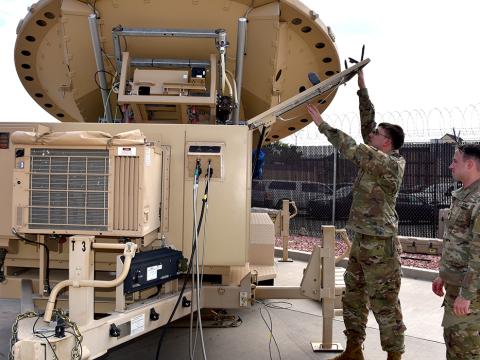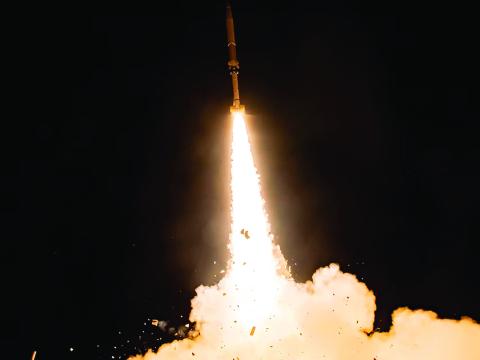Agencies Form Commercial Satellite Communications Services Pact
The Defense Information Systems Agency (DISA) and the General Services Administration (GSA) have entered into a partnership to streamline acquisition of commercial satellite communications (SATCOM) services. Announced yesterday, the agreement will lead to a hybrid of GSA's multiple award schedules and indefinite delivery/indefinite quantity (ID/IQ) contracts. Officials of both organizations are lauding this collaborative effort as "historic" and agree that the Future Commercial SATCOM Access contract will be worth $5 billion over a 10-year period.
The Defense Information Systems Agency (DISA) and the General Services Administration (GSA) have entered into a partnership to streamline acquisition of commercial satellite communications (SATCOM) services. Announced yesterday, the agreement will lead to a hybrid of GSA's multiple award schedules and indefinite delivery/indefinite quantity (ID/IQ) contracts. Officials of both organizations are lauding this collaborative effort as "historic" and agree that the Future Commercial SATCOM Access contract will be worth $5 billion over a 10-year period. The partnership has been years in the making, GSA and DISA officials allowed. During a media roundtable, officials from both agencies agreed that the partnership will offer benefits in a number of areas. It creates a common commercial SATCOM marketplace for all of their customers, including federal, state and local government organizations. By sharing contract replacement costs, it will save taxpayers millions of dollars, though officials did not share specific estimates of the savings. It also ensures that all government customers have access to technology that meets government information protection regulations. DISA market research was used to determine the targeted service areas to be included under the partnership. The result was a focus on transponded capacity, which includes dedicated bandwidth on a commercial satellite in any commercially available frequency band; subscription services, which involves pre-existing, pre-engineered fixed satellite service (FSS) or mobile satellite service (MSS); and end-to end solutions such as bandwidth that can include FSS and MSS components as well as hybrid solutions of both. The GSA's Schedule 70 will be refreshed to accommodate the transponded capacity and subscription services, and ID/IQ contracts will be established for customized end-to-end solutions. The strength of the program is that there is a 20-year potential life cycle that features "on ramps" and "off ramps" so that companies that are not selected immediately can vie for the business at a later time, DISA and GSA officials agreed. The Schedule 70 refresh announcement is planned for the first quarter of fiscal year 2010, and a draft ID/IQ request for proposals release is scheduled to take place during the second quarter of fiscal year 2010. On the DISA side, this agreement allows for multiyear commercial SATCOM leases, although traditionally services have been procured using operations and maintenance funding, which covers a single year. However, if additional funding is granted, there is no limit to the length tasks can go on, including to the length of the contract. DISA will maintain its decentralized ordering authority from the U.S. Defense Department; the GSA is simply providing the vehicles. Savings are expected to be realized by both vendors and the government as a result of this partnership. Companies will be able to present their solutions to a single source through a single process, saving them overhead expenses. The government will be able to take advantage of the economies of scale. In bandwidth buys alone, savings of 10 percent to 15 percent could be realized, says Bruce T. Bennett, director of satellite communications, teleports and services, DISA.




Comments